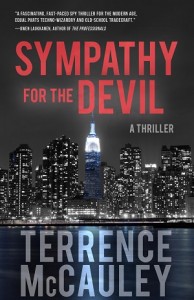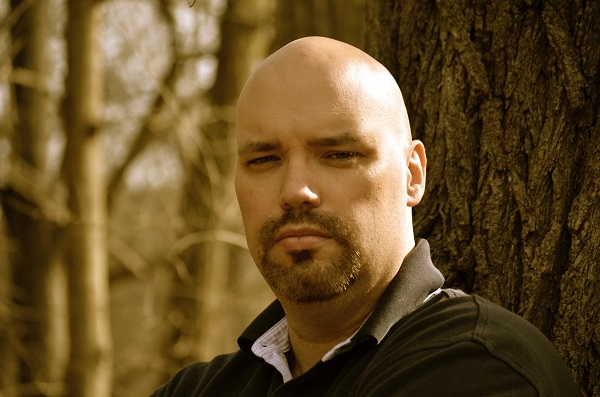Terrence P. McCauley is an award-winning writer of crime fiction. His first techno-thriller Sympathy for the Devil was published by Polis Books this July. Polis is also republishing his first two crime novels set in 1930 New York City — Prohibition and Slow Burn. He has had short stories featured in Thuglit, Spintetingler Magazine, Shotgun Honey, Big Pulp, and other publications. A proud native of The Bronx, NY, he is currently working on his next work of fiction. He is represented by Doug Grad of the Doug Grad Literary Agency.
- What is your writing routine?
I write every day in some fashion. If it’s not at the computer, then it’s on my iPhone or iPad or even in longhand if I have to. I read every day as well, which keeps the creative juices flowing rather than accumulating in the bottom of the brain pan.
- Tell us about your current project.
I’m currently finishing up the sequel to Sympathy for the Devil. The sequel will be called A Murder of Crows. Not to give away any spoilers about the first book — let’s just say that many of the plot points started in Sympathy continue in Crows and expand the world of the University even further. Since Polis also re-issued my 1930s-based novelsProhibition and Slow Burn, I’m also working on sequels for those stories as well: The Long Road Back and The Fairfax Incident.
- Which writers, living or otherwise, would you host at a dinner party and why?
James Ellroy, Richard Matheson, Ross Macdonald, Fredric Browne, Donald Westlake, Budd Schulberg, and Robert B. Parker. All of those writers have had some impact on my writing. Ellroy for his style, Macdonald for his soul, Schulberg for his grit, Matheson, Parker, Browne and Westlake for their range and ability to write different types of stories within the same genre. And sometimes, outside of the genre, as well.
- What do you enjoy about your MWA membership?
I’m not as active as I should be. That’s my fault and one of my resolutions for the coming year is to attend more meetings. Writing is a solitary pursuit, but the MWA offers the ability for writers to interact with each other and support each other and to just climb out of our own heads once in a while.

